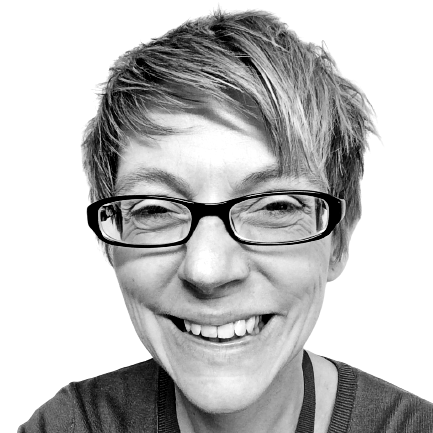The fast way of summing up my work is to say that I am a researcher of stories. I feel incredibly lucky to be able to say that, when people ask me what I do! I didn’t start working in research until my mid-40s, and think there are huge advantages to doing a PhD in midlife, so if this applies to you, don’t let anyone tell you it’s too late.
My professional background was community and youth work, but I have always loved stories and reading. All I wanted to do when growing up was (a) English literature at university and (b) become a world-famous children’s novelist. I achieved the first goal but was pretty mad when J.K. Rowling beat me to the second one! I’d always been drawn to academia, but towards the end of my degree I knew I didn’t want to do research in literature. My own life had been radically changed by the ‘year out’ I’d spent living and volunteering at a young people’s retreat centre. I now wanted to change the world as well as write that novel, and didn’t think research in literature was going to achieve either (though I might challenge that now!)
So I trained as a youth worker and worked in that field for 20+ years, culminating in running Sheffield’s youth service for LGBTQ+ young people. Working more at policy level meant I got interested again in research, and I found that the University of Sheffield did an MA in sociological research methods, which sounded great – theory AND practical skills! I funded that myself using a career development loan, studying part-time whilst continuing to run the charity. It was hard, but I absolutely loved being back in lectures and seminars, and felt that I’d come home. I was hoping it would lead to a PhD scholarship, but I wasn’t successful in getting funding, so I carried on working in voluntary sector management roles.
Then, as a colleague of mine once said, I went away and had some lived experience! I’d had recurring times of depression since my teens, due in part to coming to terms with my sexuality. Eventually I just burnt out, a combination of my own sense of not being enough, and continual pressure to find enough funding to keep services and jobs going. Things were pretty grim for a while. I thought I’d failed at life. Very luckily for me, my wife supported me to take the time out I needed to recover. I discovered meditation through a secular mindfulness course, which led me to a Buddhist community. This context gave me other ways to value my life and define ‘success’, and I began to be able to change my own personal narrative from a defeated, “I’ve failed” story, to one of someone who has been searching for meaning all my life.
I was determined not to return to work that had contributed to my depression, and started to look again at PhD scholarships, not expecting this to be possible as it was now 10 years since I’d done the MA. Then I saw my current job advertised, and realised that it included doing a PhD alongside a fully salaried job. I had no idea that was even possible!
I applied but honestly thought I had absolutely no chance of getting it. However, the more I wrote the application, the more I could see how it brought together so many strands of my life – my lifelong love of stories, my professional background in running mental health projects, the skills I’d gained in my masters, and even my own experiences of depression and burnout. The experiences I was ashamed of, that I thought had ruined my CV forever, turned out to be my greatest strength!
This meant I was able to be authentic, and passionate, at my interview. I didn’t need to hide anything. I got the job, and even then had a wobble and turned it down, convinced it would lead straight back to a high-stress life. Luckily again for me, my future manager and PhD supervisor talked me round, sharing that he too, had lived experience of mental health distress, and wanted a balanced family life – and very practically outlining ways in which I could make the job manageable. I asked for and got his permission to share that here, as it was a crucial part of my route into research – it normalised my own experiences and convinced me I could do it. And so I took the plunge. I am so glad I did.
“I love my work and still cannot believe I get paid to read, think and write. I’ve also had times of real doubt about my ability to do this, but the older I get, the more I realise that many (most?) people also regularly experience imposter syndrome, and that those are thoughts, not facts!”
I’d say my age has been a real asset, as I have more knowledge of myself to draw on, as well as a broad range of professional skills. It’s also sometimes been challenging to have taken a non-traditional route into research. What really helped me was networking with other ‘mature’ PhD students; having a PI and line manager who let me know they appreciated the life experience I brought; realising that my lovely team-mates don’t care what age I am; and seeking out an inspiring PhD supervisor (and fellow woman in midlife) whose belief in me has been crucial. So my main advice would be to find allies and cherish them!
I could never have foreseen the way my previous academic, professional and personal experience have all come together in one job. It’s been fantastic for me to be able to combine my passion for how stories can change us and the world, with my deep wish to work for better mental health for us all.

